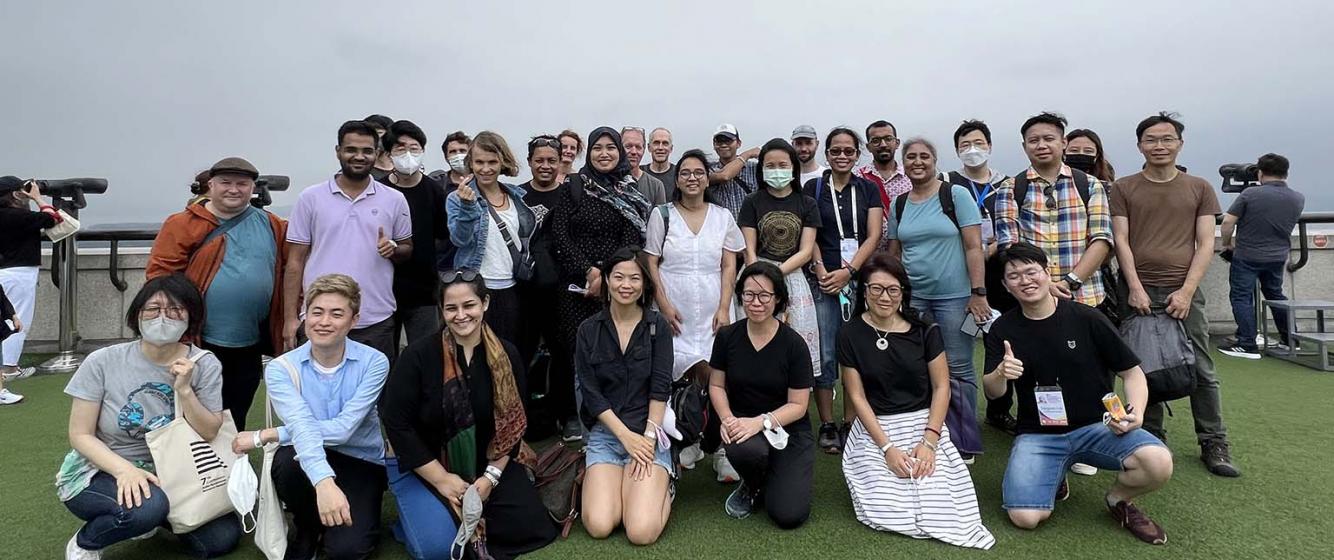
Participants of the 7th ABRN conference, Seoul 23-25 June 2022.
‘Borderland Futures’ – Reporting from Seoul!
Meeting in Seoul after waiting for 2 years for the 7th ABRN conference (23-25 June 2022) was a great experience. We met many in person in the beautiful campus at Chung-Ang University and greeted each other online across diverse locations and time zones. The conference was both a long-waited reunion among colleagues and friends, and an opportunity to meet new people and create fantastic networks.
We started planning this ABRN conference back in 2019 (which seemed like a lifetime ago!) with the excitement of working with our Korean partner – the Reconciliation & Coexistence in Contact Zone (RCCZ) at Chung-Ang University. At the time, we were keen to open a forum for Asian borderland scholars to come together on the historic occasion of the 70th Korean War commemoration and reflect on what the borderland futures may be. Co-existence in particular was developed as a key theme to think about connections and convergencies, linkages and mobilities. But what happened in 2020 was not a world with better connections or convergences, but disruptions and border closures across the world because of the pandemic.
In the past two years, we have experienced a lot of doubts and uncertainties due largely to the pandemic and a range of associated logistical and organisational challenges. Can people travel? Can we actually meet in person? Will the hybrid format work for a conference like ABRN? These uncertainties disappeared when we were warmly welcomed by the RCCZ team and colleagues. Special sessions including film screening and artist talks were organised alongside ABRN academic panels. A professional tech team and a simultaneous interpreter were on-site to provide support. Many staff and student volunteers helped international conference participants finding their ways around the venue and different facilities on campus.
During the three days of the conference, participants from Asia and around the world joined in inspiring discussions around such diverse issues like processes of zoning, more-than-human interactions, citizenship and knowledge-making as well as natural resource use in Asian borderlands. A series of special panels draws attention towards the particularity of historic and contemporary borderland transformation around the Korean peninsula. Two thought-provoking keynotes delivered by Prof. Yongku Cha and Dr. Franck Billé suggested new trajectories for the conceptualization of borders and borderlands.
On the final day, we went on a tour to the DMZ and enjoyed the panoramic view on top of the Odusan Unification Tower located at the northernmost ceasefire line of the western front where Han River and the Imjin River meet. The convergence of the two rivers, in an interesting way, brings us back to the main theme of connections and co-existence that this conference was set out to explore. Finally being able to meet in person symbolises the importance of such connections. Looking ahead, we are hopeful that border restrictions will be gradually lifted in the coming weeks and months, and we will be able to meet again in person in near future!
Go to the 7th ABRN conference website
Add new comment